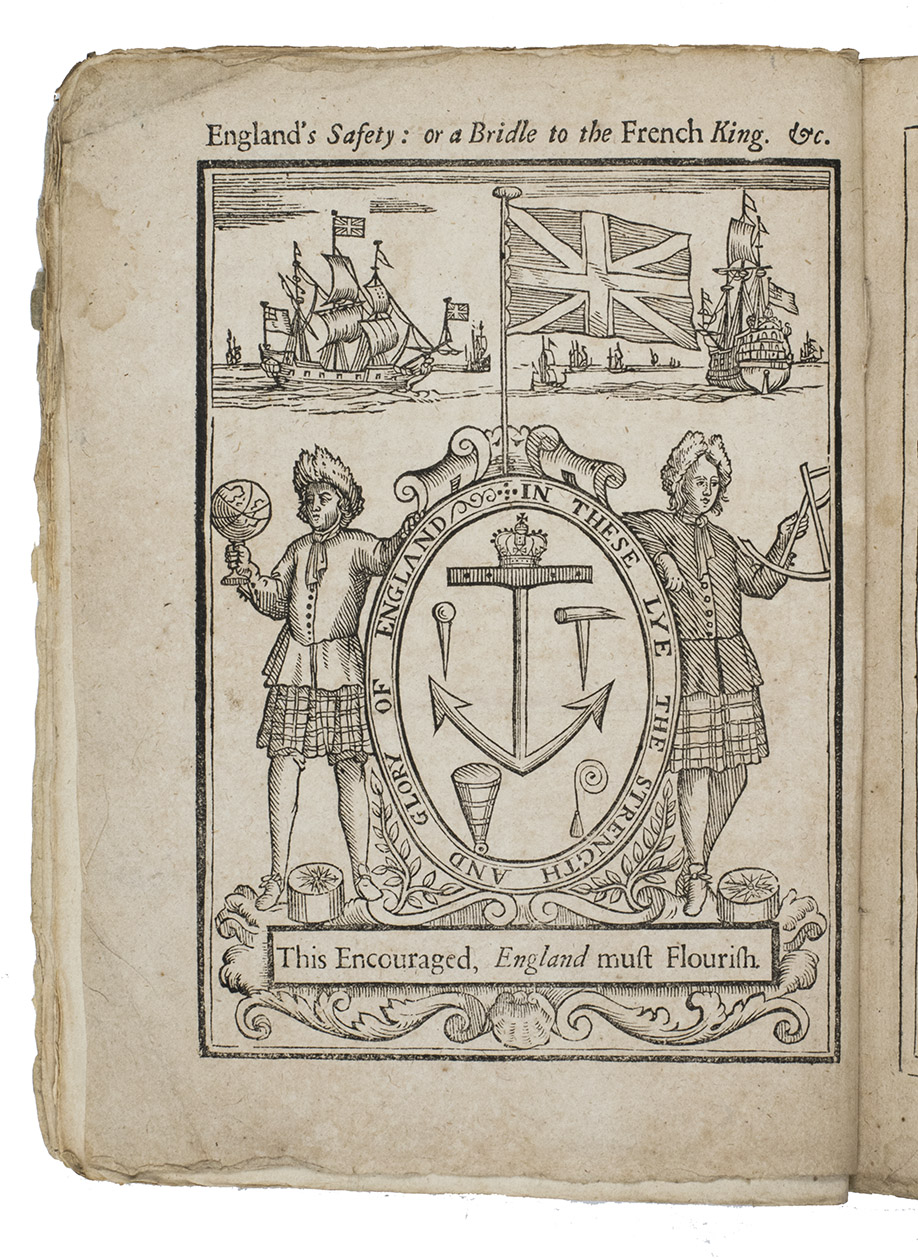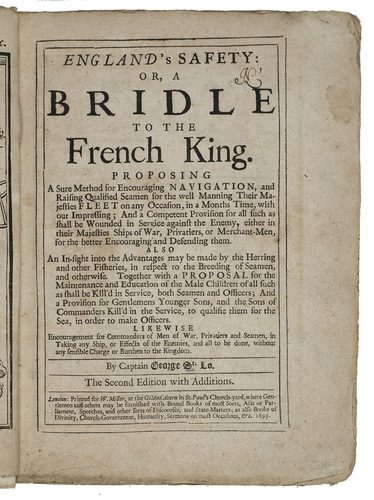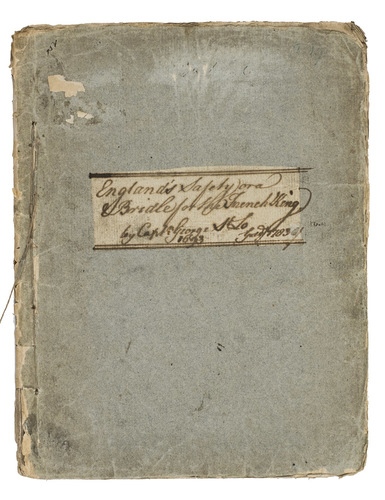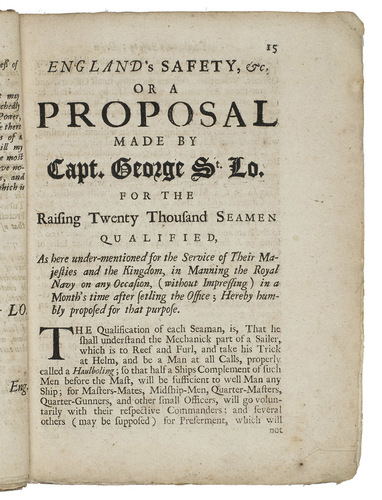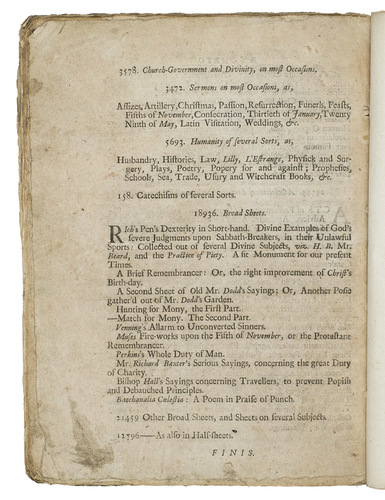ST. LO, George.
England's safety: or, a bridle to the French King. Proposing a sure method for encouraging navigation, and raising qualified seamen ...
London, William Miller, 1693. 4to. With a pseudo-heraldic woodcut frontispiece (17 x 12 cm) with letterpress title and motto ("This encouraged, England must flourish."), with as bearing an anchor topped by the royal crown, and other nautical attributes, supported by 2 men, one with a globe and the other with a quadrant, each with a compass at his feet. The British flag flies above it with ships in the background. Set in roman and italic types. 18th-century blue paper wrappers, side stitched through 4 holes, with manuscript title-label on front. 54, [2] pp.
€ 1,500
Second edition, with additional material and 8 pages longer than the first edition published earlier in the same year, of a rare and interesting pamphlet containing proposals for the improvement of England's navy and maritime trade, by the naval Captain and administrator George St. Lo (1658-1718).
St. Lo suggest several methods for improving the British navy, recommends raising the pay of the crew and proposes that all seamen be registered with a local intendant, so that when the call for service does come, men may be located and distributed more quickly. He also notes that the French spend much more money on their navy. Regarding the confiscation of foreign cargo, St. Lo proposes that fully one third of the value of the goods be awarded to the captain and the crew. When it comes time to auction the actual goods, he recommends the spoils be broken into small lots, to allow for the greatest price per lot, thus increasing revenue.
St. Lo's nine-page dedicatory letter to the Houses of Parliament gives a fascinating and detailed account of his own mistreatment by the French after his capture. In August 1688 St. Lo was appointed Captain of the Portsmouth and attached to the fleet in the river under Lord Dartmouth. He continuing to command her after the Glorious Revolution of 1688/89. In 1690 he was captured by the French and carried, severely wounded, to Brest, where he remained a prisoner for some time. His wound probably disqualified him from further service afloat, and in 1692 he was appointed a commissioner of prizes, in 1693 an extra commissioner of the navy, and in 1695 resident commissioner at Plymouth, where in 1697 he was directed to guard and assist the workmen employed in the construction of the first Eddystone lighthouse.
With what may be an owner's monogram (JNL?) on the title-page. Where the author notes some opposition to his book, the owner has struck through his statement that it did not affect sales. In good condition and wholly untrimmed, slightly thumbed and with some quires slightly browned. The spine of the wrapper is tattered. ESTC R229366; DNB L, p. 172; Cat. Goldsmith I, 2996; Kress 1823; Wing S342.
Related Subjects:
